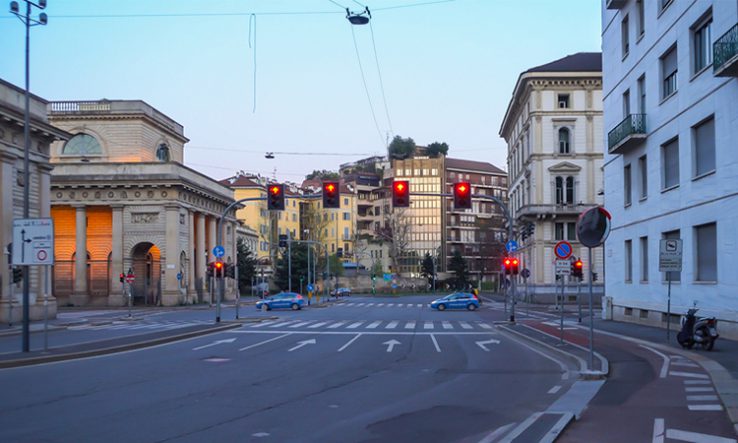
Image: VILTVART, via Shutterstock
Trust, openness and digitisation feature in our second collection of reflections on the Covid-19 pandemic
In the second of three articles, figures from across Europe reflect on the impact of the coronavirus pandemic on the research world, and their hopes and fears for what might emerge in its aftermath. (Read part one here and part three here.)
‘Trust in science is back’
The good news: Trust in science is back. The public has devoured crash courses in virology and epidemiology. People have learned that scientists can disagree and yet reach consensus. Relations between science and politics have improved. Experts—including social scientists—have been listened to.
Overall, the scientific community has engaged in early and open international cooperation. The need to invest in basic research is clear, and action has to follow.
Some bad news: The race to develop, manufacture and distribute a vaccine has degraded into an auction to be won by the highest bidder, driven by ugly national egoisms. The lack of solidarity with the Global South will come back to haunt us.
The shift to working online has not prevented closed borders, closed labs and closed universities from delaying research. Working from home has not worked well for women scientists, who have submitted significantly fewer papers than male colleagues.
Conclusion: We are not as much in control as we thought. Will we be better prepared for the next known unknown? Can we shift from downstream to upstream thinking in a truly cross-disciplinary, open and cooperative way?
Helga Nowotny is professor emerita, ETH Zurich and a former president of the European Research Council
‘We have become digital-analogue hybrids’
The Covid-19 pandemic has not dramatically changed our understanding of research and innovation, but it has certainly sharpened our focus on the digital turn. Literally overnight we have learnt to use webinars to give lectures and digital platforms to hold meetings.
Presenting a poster at a conference has given way to sharing Powerpoint slides, and a seminar in Brussels has turned into a Zoom meeting in our own office. We have learnt how effective it can be to teach Bronze Age economy without leaving home, but also how depressing it is when your students turn their video off, and how much you miss looking at their bored faces.
As a result, we have become digital-analogue hybrids, which entails a hope and a fear at the same time. The hope is that we never give up the precision and the efficiency of the digital mode, which now affects all research fields. The fear is that we are lured into hiding our emotions behind a monitor and sidestep the joys and challenges of personal interaction.
Online teaching is here to stay, but there can be no true research without human exchange. Our newly acquired hybrid status will make us fitter: evolution teaches us is that hybridisation is mostly a good thing.
Antonio Loprieno is president of the European Federation of Academies of Sciences and Humanities
‘Open knowledge will only work if there is trust’
One fact: Open access in publications and data is here to stay. Coronavirus achieved in weeks what the open access movement had struggled with for decades, demolishing pay walls and forcing the research community to make all relevant data Findable, Accessible, Interoperable and Reusable (Fair). It has been a huge case study in the benefits of open science; there will be no going back.
One hope: The European Open Science Cloud becomes Europe’s unique way for managing all its open-science activities. Open knowledge and data will only work if there is trust. The European way is for research to be managed as a commons, not for profit, guided by the needs of the scientific community.
This implies a trusted third party, such as the EOSC, and requires Europe’s research infrastructures to stop acting as one-stop shops where data are centralised.
EOSC is more about harmonising the rules of research data than creating physical infrastructure. To support trust in open data, the EOSC needs to mandate machine readable, Fair data to be stored at the point of production and visited by analytical agents, rather than the other way round.
One fear: Short-termism and populism will obstruct societies’ efforts to prepare for the next pandemic or any other global, multi-dimensional challenge, such as climate change, food quality or migration. Even the best science cannot will not prevent crises, but it can build mechanisms to alert us.
An alert system is needed that acts globally and thinks multidisciplinary. Another pandemic should not catch us so off-guard again; we can’t put the world on hold once more.
Jean-Claude Burgelman is a professor of open research policy at the Free University of Brussels and the European Commission’s former open access envoy
‘Nurture a critical mass of young scientists’
We are witnessing the rise of a new discipline that I call Covid-19-ology. This emerging multidimensional field includes life science, social science, environmental science, modelling, technology development and, above all, regulatory science.
My hope is that this discipline can strengthen humanity’s capacity to respond to future emerging outbreaks and contribute to resilient and globally harmonised regulations.
I also hope that scientists—who have found responsibilities for communication and leadership thrust upon them—gain experience in effective science communication and responsible leadership. That applies particularly to young scientists, who are the next generation of communicators and advisers.
I also have fears—many fears. The main one is the triumph of different versions of the truth. Conspiracy theories, together with populism and sensationalism, are responsible for the high level of confusion among the public. They erode and destroy trust in scientists and institutions. When they cause people to reject facts, they cost lives. Covid-19-ology should also nurture a critical mass of young scientists capable of facing this large and terrifying threat.
Felix Moronta is a member of the Global Young Academy, working at the International Centre for Genetic Engineering and Biotechnology, Trieste
A version of this article also appeared in Research Europe